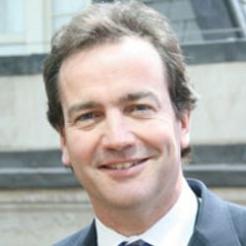Minister for civil society Nick Hurd faced a barrage of doubts about the government’s strategic commitment to the Big Society at a Green Alliance event in central London yesterday.
Various civil society leaders tackled Hurd over the failure of central government departments to 'buy in' to the agenda, the lack of any leadership from David Cameron to force them to do so, and the absence of any policies around the role of business.
Simon Roberts, chief executive of the Centre for Sustainable Energy, said the government had said a lot about the role of public service reform in creating the Big Society but nothing about private market reform
“We are still seeing private markets dominate and deciding for themselves without any insistence on their relationship with communities,” he said.
Matthew Taylor, RSA chief executive, asked: “What is going to be the role of the private sector in the notion of the Big Society? The phrase ‘corporate social responsibility’ plunges me into despair, it is vacuous nonsense most of the time. We need a bit more fibre in what we challenge the private sector to do.”
Roger Clarke from Defra’s civil society advisory board said that if Big Society is going to work, the government needs to set out its position on key issues such as climate change, zero waste, and greening the economy.
Simon Roberts added: “We have to transform the way businesses do things in the energy space…make sure government is supporting the right interventions and that those things have a low-carbon dimension.”
No wider government buy-in
Matthew Taylor also voiced doubts that the Big Society agenda held any sway elsewhere in government. “I don’t think the Department of Health or the Department of Education have any Big Society agenda at all.”
He told Hurd it would do wonders for the credibility of the Big Society if David Cameron were seen to be winning battles in Whitehall, and particularly with the Treasury, to push through policies that help to build the Big Society, especially if they aren’t the most cost-effective.
Taylor said he understood government officials had recently tried to persuade CLG to tell local authorities not to cut voluntary sector budgets but been told that would go against the new localism agenda.
Confused message about values
Martin Kirk, head of UK campaigns at Oxfam, said it was difficult to pick up a coherent message from the government about values.
He said: “We have to recognise that we live in a society that has created its own social norms, and those norms are incompatible right now with a viable Big Society based on genuine community action.
“The values that are massively dominant are based on achievement and power and individualism, and they actively suppress the values of community and universalism and benevolence.
“Until we find some way to rebalance that national conversation – not totally doing away with consumerist values, but rebalancing it – we will always be trying to push a very big rock up a very big mountain trying to engage people at a community level in this sort of initiative.”
Fiona Reynolds, National Trust CEO, agreed there were competing values. “On the one hand, growth is the only show in town, but we also see, especially at the National Trust, that people are yearning for simple pleasures, like feeling close to nature, close to beauty, to have opportunities with their families to experience something of timeless value, that goes beyond price.
“How do we capture that emotional ask from people for something new, for values that feel more resonant of the 21st century rather than 20th century materialism.”
Nick Hurd insisted that the Big Society message is a challenge to those old values, that it pushes people to face up to their responsibilities beyond paying taxes. “And that makes quite a lot of people uncomfortable,” he said.
He also added that the issue of private market reform is an important one, and “perhaps too often missing from our speeches on this”.









